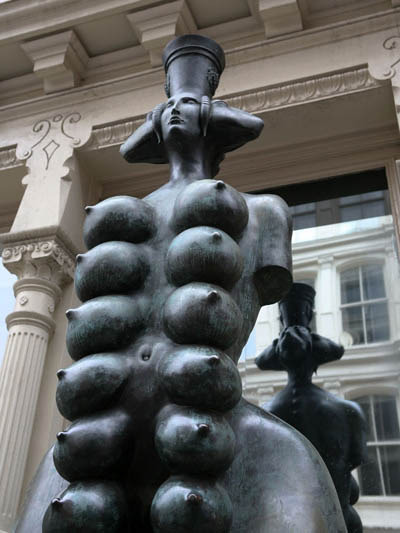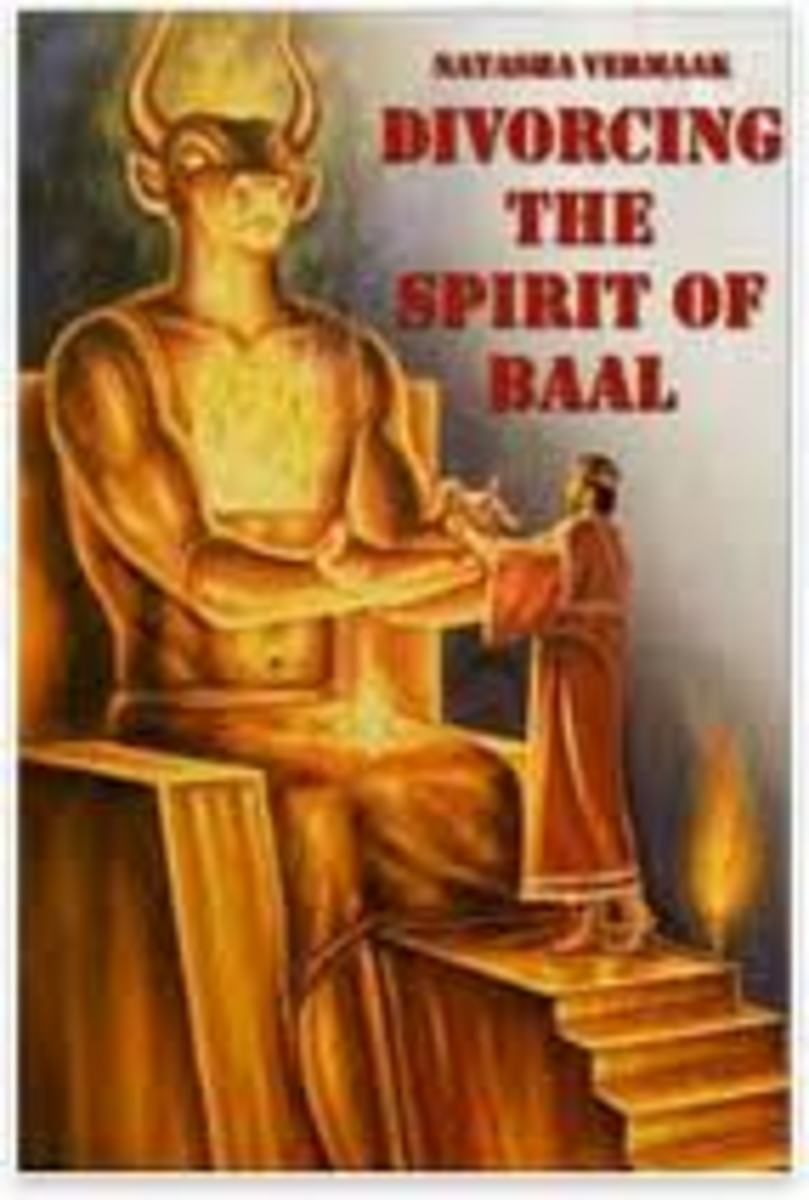Divorce and Remarriage, Words of Institution (Episode IV)

“When a man hath taken a wife, and married her, and it come to pass that she find no favor in his eyes, because he hath found some uncleanness in her: then let him write her a bill of divorcement, and give it in her hand, and send her out of his house. And when she is departed out of his house, she may go and be another manʼs wife. And if the latter husband hate her, and write her a bill of divorcement, and giveth it in her hand, and sendeth her out of his house; or if the latter husband die, which took her to be his wife; Her former husband, which sent her away, may not take her again to be his wife, after that she is defiled; for that is abomination before the LORD: and thou shalt not cause the land to sin, which the LORD thy God giveth thee for an inheritance.” (Deuteronomy 24:1-4)
The importance of the text before us cannot be over emphasized because of its key position as: The Words Which Institute the “Bill of Divorcement.” Deuteronomy 24:1-4 is fundamental to the divorce and remarriage debate. Perhaps, the best commentary on this text is the one given by Jesus, and recorded by Matthew, in chapter 9 and verse 8 of his gospel: “... Moses because of the hardness of your hearts suffered you to put away your wives: but from the beginning it was not so” (Matthew 19:8).
Here, Jesus states that Moses wrote these words because of the hardness of the hearts of the men of Israel. This has been misunderstood, and misapplied, by many if not most Bibles expositors. Jesus is not teaching that Moses catered to the sinfulness of the men of Israel, by giving them the permission to divorce their wives in order to acquire new ones. No! Quite the opposite is true. Because of the hardness and indifference, of the hearts of the men towards their wives, divorce was instituted as a mercy to wives who were rejected, unloved and uncared for by husbands, who had turned to other women which pleased them better. In fact, men would “put away” their wives without releasing them from the “law of the husband”—Romans 7:1-3 (this law is covered in Chapter Sixteen, this Section).
This passage, is the Lawʼs authoritative institution of divorce. (Not that divorce was nonexistent before Moses wrote of it, for indeed it was practiced. Abraham put Hagar away along with Ishmael her son, as we have already seen in Chapter Six, Biblical Examples of Divorce). Here, we have the Holy Spirit, through Moses, giving a law that protects women, who are married to men who may be tempted to hold the wife bound to them, because of ego: i.e. pride, jealousy, et cetera. Such men would have, otherwise, lost interest, and would have simply pushed such a wife aside, and held her bound in a state of contempt. The law of Moses regulated such putting away in a way that gave the wife freedom to live a life without the stigma of one shunned.
Not only does the law institute divorce on behalf of a wife, but it also regulates its power and boundaries. Listed here are some freedoms and boundaries set down by the law of Moses concerning divorce:
- The divorcee is free from the “law of the husband” so that she may marry again (Deuteronomy 24:1-2).
- A divorcee may not become the wife of a priest (Leviticus 21:7, 14).
- If a divorcee is the daughter of a priest, she may return to her fatherʼs house and partake of the holy things of her fatherʼs house. The state of being divorced has not defiled her in such a way as to make her unfit to partake of the things of the temple, i.e. the priestly provisions of her fatherʼs house (Leviticus 22:13).
- The divorcee is obligated to perform any vow made after her divorce. This is true because she is no longer under the authority of a husband (Numbers 30:9).
Such regulations provided that a divorced woman would find her place in society.
Exposition of the Passage
“When a man hath taken a wife, ...” ∼The natural, God ordained, course of life is for a man to choose a woman for his wife, and begin a family. Moses wrote in Genesis 2:24, “Therefore shall a man leave his father and his mother, and shall cleave unto his wife: and they shall be one flesh.” ~ This statement, from Genesis, introduces the idea of the marriage covenant. We may speak of marriage as a covenant because of its very nature. The word covenant is the Hebrew word “beriyth” (Strongʼs #OT 1285) meaning: to bind, or confederate, by cutting. The biblical idea of covenant always implied the shedding of blood; thus, a blood covenant is always understood. In the case of marriage, it is the act of sexual intercourse (coitus) between a man and his virgin wife that facilitates the blood covenant: namely, the breaking of the hymen and the bleeding involved, combined with the passing of the seamen. Thus, is formed a true blood covenant that is binding until death under normal circumstances. However, the biblical text before us is introducing a legal way through which such a covenant may be put aside.
“And it come to pass that she find no favor in his eyes, …" ∼ The imagery here is: The time of marital bliss is over, and the wife no longer pleases the man—for some reason that is not made clear. At any rate, this statement is the genesis of Jesusʼ commentary, recorded in Matthew 19:8, “... Moses because of the hardness of your hearts suffered you to put away your wives: but from the beginning it was not so.” ~ The idea implied here is: If their hearts were not so hard, they would not be so quick to show their wives disfavor.
“Because he hath found some uncleanness in her:” ∼ A debate has raged over the millennia as to what was meant by “uncleanness.” The Hebrew word here is ʻervah (Strongʼs #OT 6172) meaning: nakedness. Some have suggested that this word ʻervah references some sexual immorality only; others have maintained that it refers to any unseemly, or inappropriate, flaw in her character. This very topic was one of the contentions between the rabbinical schools of Shammai and Hillel, who were contemporaries with Christ. So, then, the question still remains: Is Moses referencing sexual sins only, or is he also including lesser incompatibilities?
I humbly acquiesce to the scholars, who have come before me, and claim no authoritative ruling beyond what might be said for logical reasoning. Logical reasoning would, it seems to this author, lead us to a certain conclusion. Such reasoning would go something like this: Since sexual immorality in the woman (either before or after marriage) was settled in death by stoning, it would seem that demanding a “Bill of Divorcement” for such sin (which allowed the sinner to continue her life with another husband) would be a moot point. If this logic has any validity it would appear that the “uncleanness” spoken of by Moses would apply to lesser character flaws, other than sexual impurity.
The Bible is quite clear in subscribing death by stoning for sexual offenders that trespass the marriage vows:
Deuteronomy 22:13-22. “If any man take a wife, and go in unto her, and hate her, and give occasions of speech against her, and bring up an evil name upon her, and say, I took this woman, and when I came to her, I found her not a maid: Then shall the father of the damsel, and her mother, take and bring forth the tokens of the damselʼs virginity unto the elders of the city in the gate: And the damselʼs father shall say unto the elders, I gave my daughter to this man to wife, and he hateth her; And, lo, he hath given occasion of speech against her, saying, I found not thy daughter a maid; and yet these are the tokens of my daughterʼs virginity. And they shall spread the cloth before the elders of the city. And the elders of that city shall take that man and chastise him; And they shall amerce him in an hundred shekels of silver, and give them unto the father of the damsel, because he hath brought up an evil name upon a virgin of Israel: and she shall be his wife; he may not put her away all his days.
“But if this thing be true, and the tokens of virginity be not found for the damsel: Then they shall bring out the damsel to the door of her fatherʼs house, and the men of the city shall stone her with stones that she die: because she hath wrought folly in Israel, to play the whore in her fatherʼs house: so shalt thou put evil away from among you.
“If a man be found lying with a woman married to a husband, then they shall both of them die, both the man that lay with the woman, and the woman: so shalt thou put away evil from Israel.”
Therefore, since sexual impurity (either before or after marriage) was dispatched by death, it would appear that by “uncleanness” (ʻervah) in Deuteronomy 24:1, we should think of some lesser incompatibility than fornication.
ʻErvah, is literally: a thing or matter of nakedness; i.e. some shameful thing, something disgraceful; the LXX reads “aphchemon pragma;” the Latin Vulgate has “aliquam foeditatem.” the London Polyglot: “aliquid foepitatis;” Buxtorf: “inquitas rei alicujus;” Levi: “the transgression of a (divine) word.”
On the strength of the word ʻervah, the school of Hillel, among the rabbis, put the interpretation that a man might divorce his wife for any unbecomingness (Mishna, ʻGittin,ʼ IX, 10).

The Bill of Divorce
“Then let him write her a bill of divorcement,…” ∼ The certificate of divorce, written by the husband and placed into the hand of the wife, dissolved the marriage contract; annulled the covenant and freed the wife from the “law of the husband” (Romans 7:1-3). The Hebrew word for the “Bill of Divorcement” is “keriythuwth” (Strongʼs #OT 3748) meaning: literally, cutting away of the matrimonial band. This word has its root in the Hebrew word for covenant (Strongʼs #OT1285) meaning: to bind, or confederate by cutting (see previously, in this chapter). The graciousness of the “Bill of Divorcement” is seen in the fact that it freed a wife from the authority of a husband, in whose eyes she no longer found favor. Although the marriage is a covenant (beriyth), in that the man and the woman became one flesh, the “Bill Of Divorcement” is truly “a writing of excision;” by which the woman is cut off from the one whole. The word used to describe this is keriythuwth; it is a strong word that leaves no room for debate concerning its meaning. Namely, the matrimonial band is “cut away” by the strength of the writing, which is placed in the wifeʼs hand by the husband.
“And give it in her hand, …” ∼ It was important that a divorced woman have physical evidence of her freedom. Therefore, the written certificate had to be placed into her hand. In this way she was removed from suspicion, and protected from a possible double minded husband who may be tempted to reclaim her, or at least hold her from remarrying. Therefore, the certificate in her hand was her passport to a more promising life with a new husband who would love her in the proper manner.
“And send her out of his house.” ∼ Before the injunction of the Law of Moses, this was the only requirement for severing a marriage. One sees this in the case of Abraham with Hagar. The Bible says, in Genesis 21:14, “And Abraham rose up early in the morning, and took bread, and a bottle of water, and gave it unto Hagar, putting it on her shoulder, and the child, and sent her away: and she departed, and wandered in the wilderness of Beer-sheba.”
The act of sending the wife away, beyond the precincts of the family, demonstrated her singleness. However, this action placed her in lonely and dangerous circumstances—even desperate circumstances—which the law of Moses addressed.
After the law was given from Sinai, the “Bill of Divorcement” (“keriythuwth” [Strongʼs #OT 3748] meaning: literally, cutting away of the matrimonial band; a writing of excision), which the rejected wife now possessed, empowered her to negotiate another marriage: “And when she is departed out of his house, she may go and be another manʼs wife.” ~ In the face of this statement, permission to remarry is, absolutely, beyond debate. The Certificate of Divorce placed in the wifeʼs hand becomes her license to remarry. However, this is true only after she has departed from her former husbandʼs house.
At this juncture, it should be pointed out that the “Bill of Divorcement” was granted because the husband had found some “uncleanness” (Hebrew: ʻervah —nakedness) in her. At this point it does not really matter if the ʻervah is sexual impropriety or some lesser incompatibility: the “Bill of Divorcement” resets the clock. Both the man and the woman are free to move forward. The man is free from his responsibility to the woman as her husband; the woman is freed from the authority of the man as being the husband (house-band) over her. (“Keriythuwth” [Strongʼs #OT 3748] meaning: literally, cutting away of the matrimonial band; a writing of excision.)
“And if the latter husband hate her,…” ∼ The rabbis of Jesusʼ day (e.g. Shammai, Hillel) allowed two, or at the most three divorces. Although the written Law of Moses did not establish a limit as to how many times one may be divorced, the oral law did, in fact, establish such a limit. This statement sets forth the possibility that the womanʼs second husband may find some uncleanness in her, as did her first husband. (The KJV uses the word “hate;” the NIV: “dislikes;” the NASB: “turns against her”). In such an event, she was to be given another Certificate of Divorce, and once again sent away.
“Her former husband, which sent her away, may not take her again to be his wife, …” ∼ Here, a prohibition is placed on the divorced woman, and her first husband, that is not altogether clear. While we may come close to an understanding from the next phrase of the verse (“after that she is defiled; for that is abomination before the Lord”), a couple of suggested interpretations will be noted here.
- First, it has been supposed that the first husband, in the beginning, suspected her of sexual immorality; but, was either unable or unwilling to prove it, and elected the more merciful route of putting her away, instead of having a public trial (which he might lose) and (if won), having her stoned (Deuteronomy 22:13-22). Now, the second husband finds in her the same, or similar, ʻervah (nakedness) as did the first. It is suggested that in such a case, suspicion would be reflected upon the first husbandʼs character if he now received her back, once his suspicions were verified.
- Second, the thoughts of John Chrysostom are accepted by many: “For if he had not enjoined this, whether it were lawful first to cast her out, and take another, then afterwards to take back the former, the confusion were sure to be great, all men continually taking each otherʼs wives; and the matter thenceforth would have been direct adultery. With a view to this He devised, as no small mitigation, the writing of divorcement.” (Homily XVII, Matthew V. 27, 28).

“After that she is defiled; for that is abomination before the LORD: …” ∼ From this clause we may arrive at a more plausible interpretation. (The key words here are ”defiled” and “abomination.” It will be recognized that the prohibition is put in place ONLY AFTER the divorced woman is “defiled” and made an “abomination.” The word “defiled” is taken from the Hebrew word tame (taw-may) (Strongʼs #OT 2930) meaning: foul, or polluted—in a religious sense. In addition to this, she is said to be made an “abomination.” The Hebrew for “abomination” is toebah (to-ay-bae) (Strongʼs #OT 8441) meaning: something disgusting/an abhorrence, especially—an idol. The word toebah is used for any graven image and the silver and gold connected with it, in Deuteronomy 7:25-26,
- “The graven image of their gods shall ye burn with fire: thou shalt not desire the silver or gold that is on them, nor take it unto thee, lest thou be snared therein: for it is an abomination” (toebah) “to the LORD thy God.
- Neither shalt thou bring an abomination” (toebah) “into thy house, lest thou be a cursed thing like it: but thou shalt utterly detest it, and thou shalt utterly abhor it; for it is a cursed thing.”
Therefore, since both the word “defiled” and the word “abomination” (tame and toebah, respectively) are words connected directly with the worship of false gods, and especially since “defiled” indicates a physical defilement connected with religion, it seems highly probable that the verse indicates temple prostitution associated with the fertility cults (see Chapter Four).
When Israel settled in the Promised Land they found the indigenous peoples involved in all types of fertility cults, which included temple prostitution in behalf of the fertility goddesses. Against Yahweh's instructions, these idol worshipers were permitted to remain in the land, thus, were a source of Israelʼs frequent backsliding. Many women, finding themselves divorced and unable to contract another marriage, for whatever cause, would join themselves to a fertility cult for economical, as well as political reasons.
If a woman had done this thing, then, she would have been joined with the abomination, and had in fact become an abomination herself. Under such circumstances, of course, she could not return to a normal married state as a wife and mother in Israel.
As pointed out (both here and in Chapter Four), temple prostitution was commonplace in Israelʼs early history. From time to time the Israelites were pulled into its orbit. This is seen in the account given, concerning the wickedness of Eliʼs sons, “Now Eli was very old, and heard all that his sons did unto all Israel; and how they lay with the women that assembled at the door of the tabernacle of the congregation” (1 Samuel 2:22). ~ This, indeed, seems to be the appropriate interpretation of this fourth verse.
“ Thou shalt not cause the land to sin,…” ∼ This statement must be understood within the context of what has gone before: namely, sexual orgies as worship to fertility gods and goddesses. It was thought that the Earthʼs harvests were the fruit of the copulating of the various gods. Therefore, the people believed the gods could be excited to engage in intercourse by the sexual acts of their worshipers. In this way all fertility cults were directly associated with Mother Earth, and the “birthing” forth of her bounty each year (or season). Thus, the application of “and thou shalt not cause the land to sin” is this: To associate the “land,” and its harvests, with the worship of idols is to make the “land,” itself, “to sin.” In fact, the “land” itself becomes an abomination.
This, indeed, was the case with adulterous Israel. At some point in time, after the tabernacle was settled at Shiloh (Joshua 18:1, 8; 21:1-2; Judges 18:31; 1 Samuel 1:3; Jeremiah 7:12), the line between the worship of Yahweh and the fertility gods became blurred. It seems that during the days of Eli the priest, and the formative years of the prophet Samuel, the priests of Israel had incorporated the local fertility rites into their worship of Yahweh—complete with religious prostitution. It was at Shiloh that the sons of Eli laid sexually with the women who presented themselves at the door of the tabernacle “in troops” (I Samuel 2:22, Hebrew: saba, Strong’s #OT6633). It was at this time that Yahweh allowed the Philistines to destroy Shiloh and capture the Ark of the Covenant. The Psalmist writes about this event in the following manner: “For they provoked him to anger with their high places, and moved him to jealousy with their graven images. When God heard this, he was wroth, and greatly abhorred Israel: So that he forsook the tabernacle of Shiloh” (Psalms 78:58-60).
It must be acknowledged, at this point that: It is not divorce which causes the land to sin; but, associating the land with idols does. Moreover, if the womanʼs body has been involved in petitioning the “womb” of “mother Earth” to yield her fruit, then her body has, indeed, caused the land to sin.
Conclusion: The Words of Institution, found in Deuteronomy 24:1-4, established, as an ordinance in Israel, what God had already honored in Abraham; namely, a just and merciful divorce. The “Bill of Divorcement” prescribed by Moses granted the woman the right to remarry. However, in these “Words of Institution,” a prohibition is put into place for a woman who has committed physical and spiritual fornication by her association with fertility cults. Such a woman, so involved, could not return to her first husband (or any previous husband, for that matter) and be accepted as a wife and mother in Israel; for indeed she, herself, is an abomination.
Apostolically Speaking
☩ Jerry Hayes
Read More From Bishop Hayes on Divorce and Remarriage.
- Christian Divorce and Remarriage
This series of articles answers the all consuming question: May a Christian divorce and remarry? This is the first of many article to come on the subject. Be sure to read them all. - Christian Divorce and Remarriage, Egalitarian (Episode II)
This article concludes the introduction to Christian Divorce and Remarriage. Here is discussed the egalitarian aspect of Divorce. - Marriage, As God Intended (Episode III, Christian Divorce & Remarriage)
This article examines the intention of God for marriage, in the beginning. What the Bible declares marriage to be is shocking to most. This is required knowledge for an understanding of divorce. - Certificate of Divorce (Diviorce and Remarriage, Episode V)
Here, for the first time we discuss the power of the "Certificate of Divorce" as a licenses to remarry - both for the guilty and innocent parties. - Biblical Grounds for Divorce and Remarriage (Divorce and Remarriage, Episode VI)
Here we explore the biblical reasons for divorce and remarriage. Many are convinced that the Bible gives no reason for divorce, others accept only 1, but this writer demonstrates. at least, 4. - Yahweh Hates Divorce? (Divorce and Remarriage, Episode VII)
Since the Bible states that God hates "Putting Away," it is important to harmonize this with God allowing divorce, and participating in it Himself. This article addresses that particular issue. - Biblical Examples of Divorce, Episode VIII
Examples are great teachers. A greater lesson can not be had that to witness how a biblical command was biblically executed. IN this study we will see just that in biblical examples of divorce. - The Biblical Status of the Divorcee, Episode IX
In this 6th episode on Divorce and Remarriage we examine the status of divorcees in the Bible. Here we answer the question: "What place does the divorced person hold in biblical society?" - The Words of Jesus On Divorce, Episode X
This article introduces all the words of Jesus concerning the subject of divorce. By this introduction of Christ's teaching on the subject we set a compass heading for further study. - The Apostolic Church, On Divorce - Episode XI
In this episode on divorce and remarriage we examine what the apostolic church (the Lord's church of the 1st century) had to say on the subject.
Own this masterfully written book by Bishop Jerry Hayes







